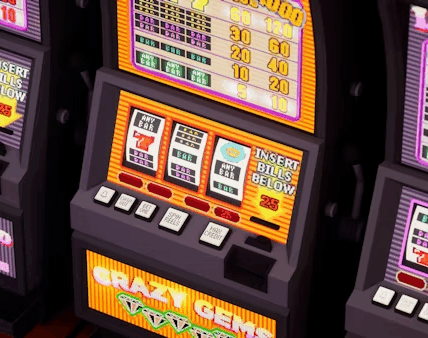In recent years, the gambling industry has become a hotbed of technological innovation, leveraging cutting-edge solutions to enhance user experiences and streamline operations. What’s particularly intriguing, however, is how these advancements are transcending the boundaries of casinos and betting platforms, finding applications in diverse sectors from retail to healthcare. This cross-pollination of technology is reshaping industries and opening new frontiers for business innovation.
Online casinos are at the forefront of adopting and refining advanced technologies, which in turn influences a range of other industries. Platforms like www.gamechampions.com play a critical role in this ecosystem by providing users with comprehensive comparisons of various online casinos, thereby empowering them to make informed decisions. These websites utilize sophisticated algorithms and data analytics to evaluate and rank casinos based on user experience, security, game variety, and promotional offerings. This reliance on technology ensures that both casinos and comparison platforms remain highly competitive while fostering a user-friendly and transparent environment. As the demand for seamless online experiences continues to grow, innovations within this digital space not only attract a loyal user base but also inspire technological advancements across multiple sectors.
Blockchain: From Secure Bets to Transparent Transactions
The gambling industry was quick to adopt blockchain technology, recognizing its potential for creating transparent and tamper-proof betting systems. This adoption has sparked a wave of innovation that extends far beyond the realm of wagering.In the financial sector, blockchain’s inherent security and transparency features are revolutionizing transaction processes. Banks and financial institutions are implementing blockchain-based systems to enhance fraud prevention and streamline cross-border payments. For instance, Ripple’s blockchain network is being used by numerous financial institutions worldwide to facilitate faster and more cost-effective international transfers.Retailers are also tapping into blockchain’s potential. Walmart, for example, has implemented a blockchain-based supply chain tracking system that allows for real-time monitoring of food products from farm to store shelf. This not only enhances food safety but also improves inventory management and reduces waste.Moreover, the concept of digital ownership, popularized by blockchain-based gambling platforms, has given rise to a new era of customer loyalty programs.

Brands like Nike are exploring blockchain-powered digital collectibles, allowing customers to own and trade virtual products, blurring the lines between physical and digital retail experiences.
Virtual Reality: Immersive Experiences Beyond the Casino Floor
Virtual Reality (VR) technology has transformed online gambling, offering players immersive, real-time casino experiences from the comfort of their homes. This technology is now making waves in other industries, particularly in retail and real estate.In the retail sector, VR is revolutionizing the way consumers interact with products before purchase. IKEA’s VR app allows customers to visualize furniture in their own spaces, reducing returns and enhancing customer satisfaction. Similarly, luxury brands like Gucci are creating virtual showrooms where customers can explore and purchase products in a fully immersive environment.The real estate industry has also embraced VR technology, offering virtual property tours that save time and resources for both agents and potential buyers. Companies like Matterport are leading this charge, providing 3D virtual tour solutions that have become increasingly valuable in a post-pandemic world where remote viewing is often preferred.
Artificial Intelligence: From Predictive Betting to Personalized Experiences
Artificial Intelligence (AI) has been a game-changer in the gambling industry, powering predictive analytics for odds calculation and personalized marketing. These applications have inspired innovative uses of AI across various sectors.In finance, AI-driven predictive analytics are enhancing trading algorithms and risk assessment models. JPMorgan Chase has implemented an AI system called COiN (Contract Intelligence) that reviews commercial loan agreements, completing in seconds what previously took hundreds of thousands of hours of work annually.The healthcare industry is leveraging AI for personalized treatment recommendations and improved diagnostics. IBM’s Watson for Oncology analyzes patient data and medical literature to suggest treatment options for cancer patients, demonstrating how AI can augment medical decision-making.Retail giants are also harnessing the power of AI for personalized marketing and improved customer service. Amazon’s recommendation engine, powered by machine learning algorithms, is estimated to drive a significant portion of the company’s total sales, showcasing the potential of AI in enhancing customer experiences and boosting revenue.
The Future of Cross-Industry Innovation
As we look to the future, it’s clear that the technological innovations born in the gambling industry will continue to influence and reshape other sectors.

The convergence of blockchain, VR, and AI is creating new possibilities for business operations and customer interactions across industries.We can anticipate more seamless integration of these technologies in our daily lives. For instance, blockchain-verified digital identities could become the norm for secure transactions across various platforms. VR technology might evolve to create fully immersive digital workspaces, revolutionizing remote work. AI could further personalize our interactions with businesses, from healthcare consultations to financial advice.However, as these technologies become more prevalent, industries must also grapple with challenges such as data privacy, ethical AI use, and the digital divide. The gambling industry’s experience in navigating regulatory landscapes and balancing innovation with responsible use could provide valuable insights for other sectors.In conclusion, the cross-industry adoption of gambling-driven technologies underscores a broader trend: innovation knows no boundaries. As businesses continue to explore and implement these technologies, we can expect a future where industries are more interconnected, efficient, and customer-centric. The gambling sector’s technological journey serves as a compelling case study of how innovation in one industry can catalyze widespread advancement, reminding us that in the world of technology, what happens in Vegas doesn’t always stay in Vegas.





